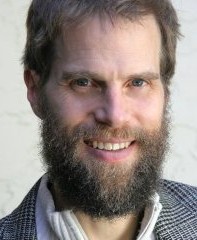- unknown (b.)
Bio/Description
An American scientist and entrepreneur known for his discoveries in biophysics, he is co-founder and CTO of OQO Corporation where he was part of the team that created the world's smallest personal computer at that time. He is working to optimize medical research priorities in the U.S. Beginning in Earth Sciences at Harvard; he contributed to the field of long-term regulation of oxygen on Earth over multi-100 Million-year timespans, quantifying the effect of the burial efficiency of organic carbon as a feedback mechanism. While at MIT, he designed and built an autonomous, robotic system that enables research into ocean circulation patterns and climate change, by operating untended for up to one year at sea on battery power and collecting hyper-pure water samples at predetermined intervals. In his work at Caltech, he moved into biophysics, publishing a paper in Science that has been cited by more than 500 subsequent scientific works. In this work, he, along with David Beratan and Jose Onuchic proved for the first time that electron-transfer rates in proteins are determined by the electron orbital interactions in the protein structure. From 1993 to 1995 he was a member of the technical staff at IBM, Almaden Research Center in Armonk, New York. In 1999, he and Jory Bell, along with other members of the team that developed the Apple Titanium PowerBook, set out to construct a Windows PC that you could carry wherever you go. In 2000, he co-founded OQO Corporation, headquartered in San Francisco, California. OQO Corporation is a computer hardware and software OEM credited by the Guinness World Records as having created the world's smallest Windows PC; an Ultra-Personal Computer that is a full-power, full-feature Windows XP PC which fits in one hand and also provides high-speed wireless access. This created a new category of mobile computing devices between PDAs and laptops, which were initially dubbed the "Ultra Personal Computer", and which subsequently became known as the "Netbook". The device won many awards for its innovation, aesthetics and functionality. After OQO Corporation, he was active in Silicon Valley as a lecturer and mentor for CEOs of startup companies. He has participated in the Quantified Self movement since the beginning, and has given numerous presentations on aspects of self-experimentation and tracking, including experiments in the 28-Hour day. In 2010 he joined startup Halcyon Molecular to lead its automation efforts. Halcyon, funded by, among others, Elon Musk and Peter Thiel, attempted to sequence human DNA using electron microscopes. The underlying goal of Halcyon's work was to make meaningful progress in understanding human biology in order to improve medicine. Following the theme of improving medicine, in 2012he founded and became Executive Director of Health Extension; a not-for-profit community working to promote investment in the biomedical research to prevent age-related diseases. The efforts of the people working in Health Extension are motivated by recognizing that: Most healthcare money treats age-related diseases; Aging is the single biggest risk factor for these diseases; and funding to address the biochemical processes of aging is less than 0.01% of healthcare spending?and correcting this missed opportunity to optimally assign medical research and translation priorities. He is the holder of numerous patents, just a few of which are: Computing With Local and Remote Resources Including User Mode Control, United States 8352868, Issued June 27, 2008; Blended Transfer Function for Computer Pointing Devices, United States 8049733, Issued April 25, 2003; and Computer Having Interlocking L-Shape Components, United States 8174501, Issued May 6, 2008.
-
Noted For:
Co-creator of the world's smallest Windows PC -
Category of Achievement:
-
More Info:


